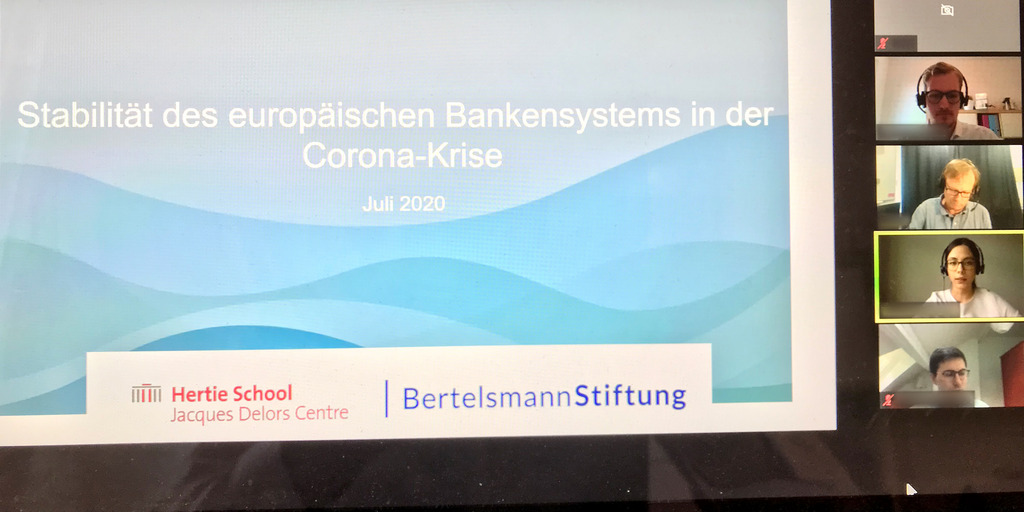After extensive lockdowns in all of Europe, GDP fell sharply in the first quarter. Furthermore, forecasts for the second quarter look even grimmer. On the other hand, the banking sector in Europe, which caused so much havoc during the Great Financial Crisis seems to be in good shape. But is this the case? Or is it just a matter of time until banks start to get in trouble? These are the questions that the authors of the Bertelsmann Stiftung and Jacques Delors Centre tried to answer in their latest papers.
At the start of the #BarTalk, Frank Eich, Theresa Küspert and Philipp Schulz presented the results from their latest study "The Corona crisis and the stability of the European banking sector". They argue that the impact of the crisis on the banking system will vary greatly across Europe. Especially Spain, Italy and France might be hit hardest in the Eurozone, whereas countries like Germany or the Netherlands might scrape past a large banking crisis. Furthermore, the authors show that this bleak scenario will depend on the type of recovery these countries will experience. The longer the recovery, the more problems might arise.
After this first presentation, Sebastian Mack from the Jacques Delors Center talked about his latest paper "EU banks' vulnerabilities". In his paper, he analyses major vulnerabilities that European banks might face because of the Corona Crisis. These include market, liquidity and concentration risks and weak profitability of banks in Europe. Whereas fiscal and monetary policy tries to keep the real economy alive, EU policymakers should require banks to suspend all discretionary distributions and preserve capital instead.
The presentations concluded with a short round of questions and answers. There was ample demand to participate and discuss the presented work. A subsequent discussion in small groups focused on bank rescue, internal risk models, the value-added tax reduction in Germany and the current negotiations on the "Recovery and Resilience Facility".







